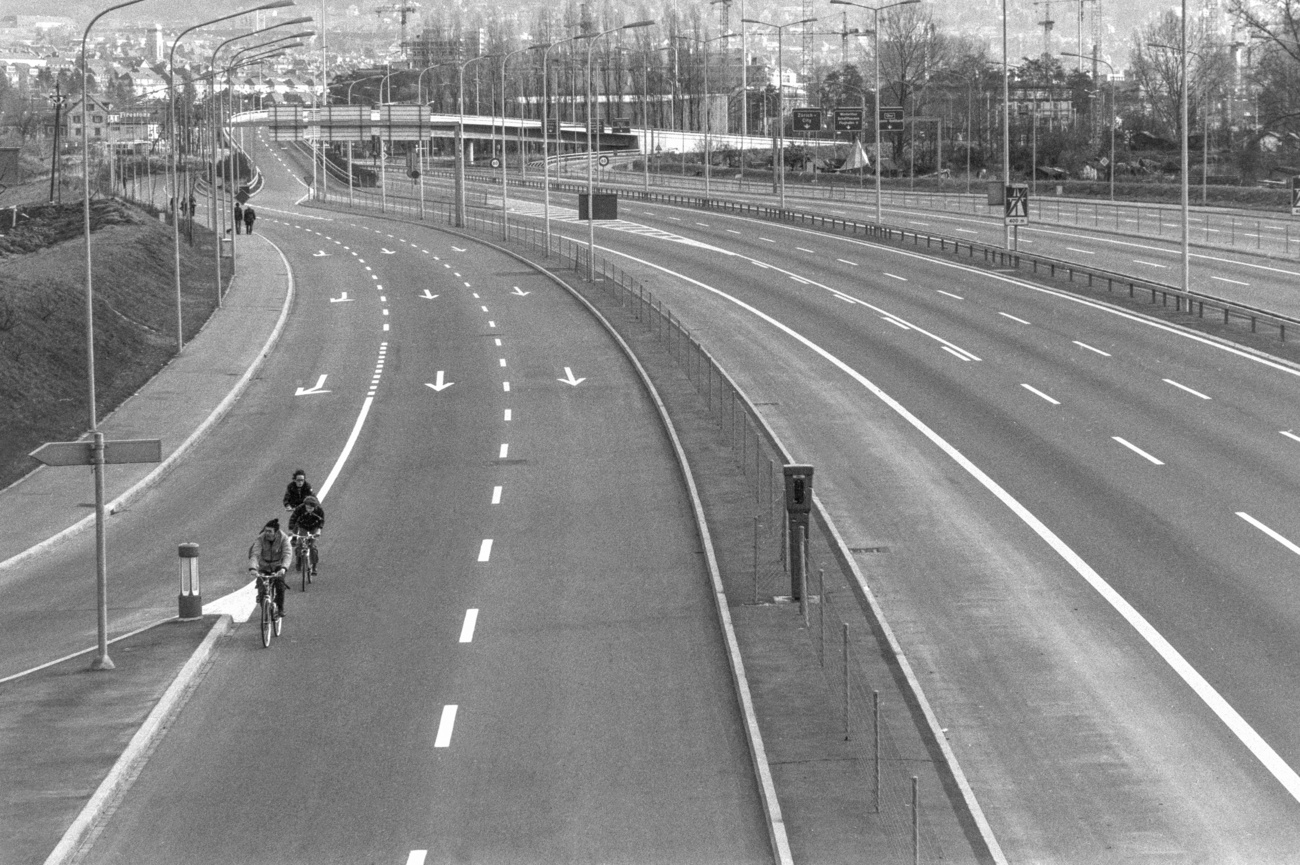Voters urged to reclaim the streets

Switzerland's roads could be car-free on four Sundays a year under a proposal being put before voters on May 18.
Opponents say a traffic ban would be economic suicide and could have a catastrophic effect on the ailing tourism industry.
The group behind one of next Sunday’s more light-hearted votes insists its main goal is to give people a sense of freedom on car-free streets rather than reduce pollution.
Alec von Graffenried, one of the initiators of the proposal, says his dream is for four days of rollerblading, cycling, picnicking and street parties.
“What we want to achieve with this proposal is to have people together in the streets, to have some social events in the streets, and for them to have fun together,” he told swissinfo.
However, opponents, who include members of the four main political parties, argue that the idea has serious implications.
One of the their main concerns is the impact car-free Sundays will have on Switzerland’s economy.
Loss of trade
They argue that Sunday is one of the busiest days for tourism, sporting events and the restaurant industry. This business could slump if people are unable to travel freely, they warn.
Barbara Polla, a centre-right parliamentarian, says the economic effects could be catastrophic for some regions, particularly for the many family-owned hotels and restaurants.
“[These enterprises] would lose ten per cent of their income,” she said.
“And at a time like the present, when they are just holding their heads above water, a loss of ten per cent of their income would be their death warrant, and we certainly don’t want that.”
Opponents also argue that there would be chaos at the borders, and bemused tourists would be forced to drive around Switzerland or continue their journey on foot, or public transport.
However, supporters of the proposal say Switzerland’s efficient public transport network is perfectly capable of handling the excess demands imposed by car-free days.
Logistical problems
They also point to 1973, when fuel shortages led to a number of car free days, with no major logistical problems.
Von Graffenried even suggested that proposal might even attract more tourists to Switzerland.
“We will advertise it worldwide. We hope that people will come and have fun, but they won’t drive through and they will understand,” he said.
Last December, an opinion poll showed public support for the proposal at 67 per cent.
But supporters are likely to face an uphill struggle. To win the vote they must get a so-called double majority, with a majority of both the cantons and the popular vote.
And opponents say that even if it does get through, the administrative and legal implications of enforcing a ban would ensure that the proposal never gets off the ground.
swissinfo, Joanne Shields
The “Sunday Proposal” calls for four car-free Sundays a year, to allow people to have fun on empty roads and streets, and enjoy a cleaner, quieter environment.
But opponents of the proposal say it could spell disaster for some tourism-related firms.
They say tourists may avoid Switzerland if they reach the border in their cars and then find out about the ban.
Campaigners claim extensive publicity and the small-scale of their proposal – four days a year – means disruption would be minimal.

In compliance with the JTI standards
More: SWI swissinfo.ch certified by the Journalism Trust Initiative

You can find an overview of ongoing debates with our journalists here. Please join us!
If you want to start a conversation about a topic raised in this article or want to report factual errors, email us at english@swissinfo.ch.